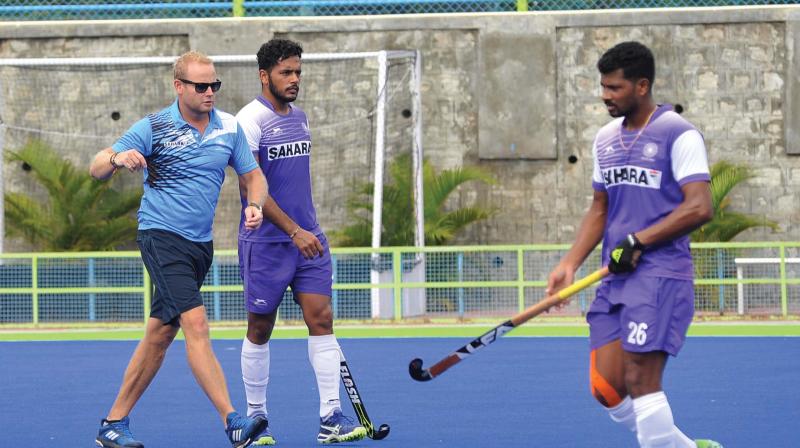It's mind over matter for hockey coach Marijne

New Delhi: India hockey coach Sjoerd Marijne wants his players to eliminate the word “if” from their mindset.
Just four months into the job, the 43-year-old Dutchman — who replaced countryman Roelant Oltmans — has had a busy time guiding the team in three tournaments, with decent results. India won the Asia Cup last October, finished with a bronze at the World League Finals at home in December and rounded off the recent tour to New Zealand giving a close run to Olympic silver medallists Belgium.
But Marijne knows that it is not enough. In an year, when India are lined up to face top nations at the Commonwealth Games, the Asian Games and the World Cup at home, Marijne says his focus is on the most critical aspect of modern hockey — the mind.
“Let me explain,” says Marijne as he settles for a chat with this newspaper here on Tuesday. “See, we are looking at results all the time, we want to win, but at the same time I cannot forget about the process. I have been told (by Hockey India) to get results and I can only do it with a proper system in place.
“I have a large pool of players whose talent and skills have brought them into the national camp. But a lot more is required at this level. The most significant thing at this level is the mental aspect.
“You can have talent, skills and expertise but if you don’t have the mental ability to cope with pressure and take right decisions on the field, it can all come down to nothing. So that’s why I say if.
“For example, a drag-flicker takes a penalty corner and there are only 60 seconds to go for the hooter. He knows that if he scores through this opportunity, he can win India the match, but what shall he be thinking? Shall he think, ‘what if I miss it?’ or shall he ponder, ‘what if I score and become a hero?’
“The answer is neither of these. He should think about his job and skill execution and only that. There is no place for ‘if’. “You cannot be thinking about the outcome at this time because it creates pressure and leads to mistakes. But then we are so hardwired to think about the outcome that we forget the task at hand, and for me, it is important to make the players understand that.”
Marijne says that his “player-driven approach” is a part of this process, where in he wants them to constantly think, analyse and decide. So what about his own role as a coach and involvement?
“Do not think of all this in isolation,” says Marijne. “I am very much a part of it and it is a two-way process. I first make them think about what they want to do and how, and then I step in to help complete the picture. I am the one who gives shape to that picture and show the direction.”
He elaborates, “The moment you are on the field, you are your own boss.
“Many times in a match, the players have to make choices and decisions and they cannot turn to me each time and ask ‘now what do I do?’
“So, I want them to learn to decide and it has to begin from the training camp itself. If they cannot decide now, how will they make the right choices on the field? So, we involve them directly and get them to learn the intricacies of the process,” he said, adding that they have put in place a leaders’ group consisting of senior players, who help carry the message to the group.
For 2018, Marijne has marked the Asian Games in Jakarta and the World Cup at home as “key tournaments” saying they will look to make slow and steady progress with each event.

